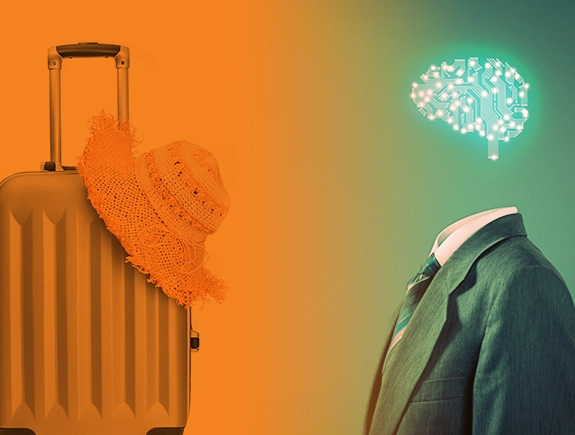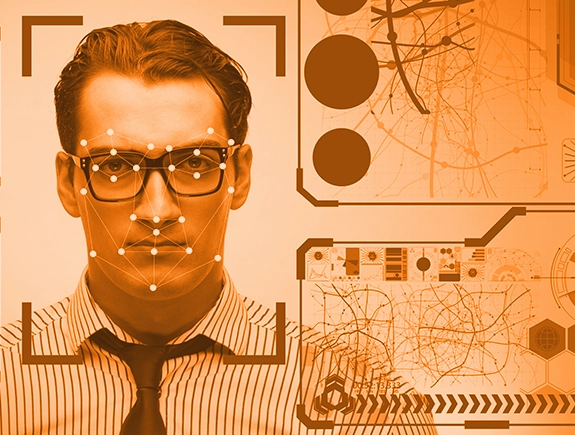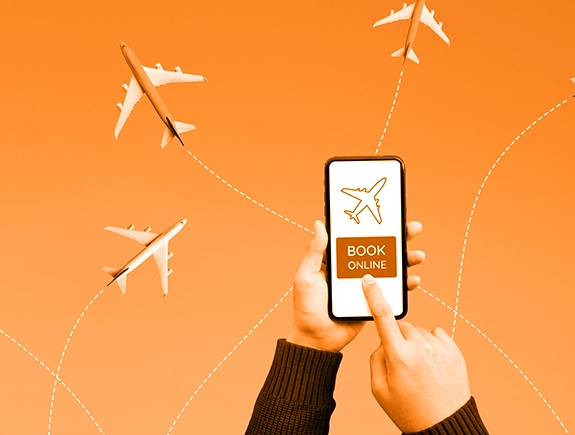It’s summer, and a large number of people are going on their annual vacations. This is an opportunity to delve into this industry and find out how artificial intelligence is used in tourism. It’s interesting to see how this industry is changing thanks to AI and how it helps travelers better organize their trips.
ChatGPT is revolutionizing the business world, and the tourism industry is no exception. Tourist agencies, hotels, accommodations, and airlines use AI to predict customer behavior. Likewise, accommodation booking platforms (like Airbnb) often employ ChatGPT to provide travelers with better, more personalized advice.
The tourism industry is one of the largest in the world, and its further growth is expected in the coming years. As young travelers have increasingly more opportunities to work from various points around the world and spend more on experiences rather than possessions – it’s clear that even better days are ahead for tourism.
Now, let’s familiarize ourselves with some of the most common ways artificial intelligence is used in tourism.
How is AI changing tourism?
Currently, AI is a part of many sectors within the travel industry, making it easier for travelers worldwide to reach their desired destinations. For instance, some airports have been using artificial intelligence in their daily operations for quite some time. Baggage scanning machines and passenger facial recognition are just a couple of these tools. We will present specific examples to provide you with a closer look at where AI is used in tourism.
AI assists with accommodation reservations
Thanks to artificial intelligence, travelers no longer need to visit travel agencies to book accommodations or purchase airline tickets. AI assistants and chatbots, instead of agents in travel agencies, provide answers to all inquiries. They also enable travelers to quickly and easily book accommodations, find affordable airline tickets, and rent cars.
These chatbots are a part of websites and apps we use every day. For example, Booking or Skyscanner already have incorporated such chatbots on their websites. You begin a conversation with them by entering details about your desired trip, and then they search for your best offer.
Robots for Face-to-Face customer interaction
Robots are gradually entering the service sector of tourism, reducing the need for engaging travel agents. Gone are the days when we had to wait in long queues to obtain simple information. Some of the largest airports or well-known hotel chains already have robots that can assist travelers in locating a gate, hotel room, and more.
Some research and predictions suggest that by 2030, robots will replace airport personnel in the passenger check-in process. There is already a hotel in Nagasaki where only robots work. They are primarily there to expedite the check-in or check-out process for guests. However, there are certainly other tasks they could successfully perform.
AI-based apps facilitating airfare searches
Innovative technologies can help you find the cheapest tickets for your desired travel dates and keep you informed about changes in their prices. Some companies have integrated tools that predict ticket prices and assist customers in purchasing tickets under the most favorable conditions.
One such app is Hopper, whose algorithm relies on machine learning. The app uses a flight database to predict airfare and accommodation prices. Additionally, it suggests the most cost-effective time for staying in a specific country or destination. It provides recommendations to customers on whether to purchase tickets immediately or wait for a more favorable price.
The mentioned flight database contains billions of historical flight prices as well as current airfare rates. By analyzing both, the app generates predictions about ticket prices. Since its launch, the app has sold tickets worth over $600 billion. Airlines also use it to adjust ticket prices.
AI for trip planning
When going on vacation or exploring a new city, you always create a plan for what you’ll visit. In the past, this meant hours and hours of research, sometimes even days. Google, social media, and the like were your main sources of information.
However, all of this is changing now because artificial intelligence can create a travel itinerary for you in just a few minutes. You can ask ChatGPT to create such a plan for you. Of course, it’s essential to write a good prompt to get a detailed plan.
If you specify your needs and preferences thoroughly, you can receive a very good and practical plan. ChatGPT will suggest where to go, what to see, where to eat, and even what to wear based on the time of year and any specific dress code requirements.
Useful, isn’t it?
Will AI revolutionize tourism?
As you’ve already read from this text, AI is already opening up a range of new possibilities in tourism. Major players like well-known hotel chains and airports are ready to experiment. Certainly, AI will never replace certain aspects of the overall travel experience, but it can make it easier and more straightforward.
And if you enjoy our articles on artificial intelligence and want to share them with your friends, now is the perfect time. They’ll have something to read while on vacation or waiting to board their next flight.













